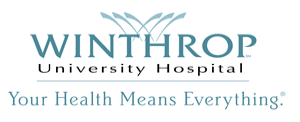A Multicenter Clinical Trial of Allopurinol to Prevent Kidney Function Loss in Type 1 Diabetes
| Status: | Active, not recruiting |
|---|---|
| Conditions: | Diabetic Neuropathy, Peripheral Vascular Disease, Renal Impairment / Chronic Kidney Disease, Cardiology |
| Therapuetic Areas: | Cardiology / Vascular Diseases, Endocrinology, Nephrology / Urology |
| Healthy: | No |
| Age Range: | 18 - 70 |
| Updated: | 4/17/2018 |
| Start Date: | February 2014 |
| End Date: | June 2019 |
PERL: A Multicenter Clinical Trial of Allopurinol to Prevent GFR Loss in T1D
Despite improvements during the past 20 years in blood glucose and blood pressure control,
diabetic kidney disease remains one of the most important causes of health problems in
patients with diabetes. Novel treatments to complement blood glucose and blood pressure
control are urgently needed. The goal of this study is to see whether a medication called
allopurinol may help prevent loss of kidney function among people with type 1 diabetes.
Allopurinol has been used for many years to decrease high blood uric acid and treat gout - a
disease characterized by arthritis, especially of the foot joints. There is evidence
suggesting that allopurinol might also be useful in people with diabetes who have normal or
moderately impaired kidney function to decrease the risk of developing advanced kidney
disease in the future. To prove this beneficial effect of allopurinol, we will be conducting
an international clinical trial at eight diabetes centers, enrolling approximately 480
patients with type 1 diabetes who are at increased risk of developing kidney disease.
Participants will be randomly assigned to take allopurinol or placebo (inactive pill) for
three years, during which they will be followed through periodical visits. To prevent any
possible bias, neither the participants nor the clinical staff knows who is taking
allopurinol and who is taking the placebo. Kidney function will be measured at the beginning
and at the end of the treatment period to see whether patients taking allopurinol experience
a slower loss of kidney function over time as compared to those taking the inactive pill. If
this trial is successful, the reduction in health problems resulting from the prevention or
delay of kidney function loss due to the use of allopurinol would have a major impact on the
lives of type 1 diabetic patients as well as on society at large, significantly reducing the
human and financial costs associated with diabetic kidney disease. Because of the emphasis on
early intervention, the proposed trial, if successful, will establish a new paradigm in
treatments to slow or prevent progression towards end stage kidney disease in type 1 diabetes
far beyond anything achieved to date.
diabetic kidney disease remains one of the most important causes of health problems in
patients with diabetes. Novel treatments to complement blood glucose and blood pressure
control are urgently needed. The goal of this study is to see whether a medication called
allopurinol may help prevent loss of kidney function among people with type 1 diabetes.
Allopurinol has been used for many years to decrease high blood uric acid and treat gout - a
disease characterized by arthritis, especially of the foot joints. There is evidence
suggesting that allopurinol might also be useful in people with diabetes who have normal or
moderately impaired kidney function to decrease the risk of developing advanced kidney
disease in the future. To prove this beneficial effect of allopurinol, we will be conducting
an international clinical trial at eight diabetes centers, enrolling approximately 480
patients with type 1 diabetes who are at increased risk of developing kidney disease.
Participants will be randomly assigned to take allopurinol or placebo (inactive pill) for
three years, during which they will be followed through periodical visits. To prevent any
possible bias, neither the participants nor the clinical staff knows who is taking
allopurinol and who is taking the placebo. Kidney function will be measured at the beginning
and at the end of the treatment period to see whether patients taking allopurinol experience
a slower loss of kidney function over time as compared to those taking the inactive pill. If
this trial is successful, the reduction in health problems resulting from the prevention or
delay of kidney function loss due to the use of allopurinol would have a major impact on the
lives of type 1 diabetic patients as well as on society at large, significantly reducing the
human and financial costs associated with diabetic kidney disease. Because of the emphasis on
early intervention, the proposed trial, if successful, will establish a new paradigm in
treatments to slow or prevent progression towards end stage kidney disease in type 1 diabetes
far beyond anything achieved to date.
Despite improvements in the past 20 years in glycemic and blood pressure control and the
introduction of 'renoprotective' drugs such as renin-angiotensin system blockers, the
incidence of end-stage renal disease (ESRD) in type 1 diabetes (T1D) is not declining. Novel
therapies to complement these interventions are urgently needed. Mounting evidence from
prospective studies indicates that moderately elevated serum uric acid is a strong,
independent predictor of an increased risk of chronic kidney disease and increased rates of
loss of kidney function among T1D persons. To study whether uric acid lowering can reduce
glomerular filtration rate (GFR) loss in T1D, we have established the PERL (Preventing Early
Renal Function Loss in Diabetes) Consortium including investigators from Joslin Diabetes
Center, the Universities of Minnesota, Colorado, Toronto, and Michigan, Northwestern
University, Albert Einstein College of Medicine, and the Steno Diabetes Center in Denmark.
With the support of NIH grant R03 DK094484, the Consortium has designed a three-year,
multi-center, double-blind, placebo-controlled, randomized clinical trial with the specific
aim of evaluating the efficacy of the urate-lowering drug allopurinol, as compared to
placebo, in reducing kidney function loss among subjects with T1D. The trial is targeted to
T1D patients with microalbuminuria or moderate macroalbuminuria or ongoing kidney function
decline and serum uric acid levels ≥ 4.5 mg/dl, since these are the patients who are at very
high risk of having rapid GFR decline and might benefit most from reductions in uric acid
levels. Study subjects will be required to have a GFR between 40 and 99 ml/min/1.73 m2,
consistent with the goal of intervening relatively early in the course of clinical DN rather
than at later stages when structural changes are far advanced and a very large proportion of
kidney function has already been lost. The primary endpoint of the study will be the GFR (as
measured by iohexol plasma disappearance) at the end of a 2-month wash-out period after the
3-year intervention. Sample size calculations under various dropout and non-adherence
scenarios suggest that 240 subjects in each treatment arm would provide at least 80% power to
detect a clinically meaningful and achievable reduction in GFR decline in the allopurinol vs.
the placebo group.If we demonstrate that allopurinol can halt or slow down GFR decline in T1D
subjects, we will provide a safe and inexpensive intervention to prevent or delay kidney
failure in T1D that can be applied at the earliest clinically detectable stages of renal
injury. It is difficult to overstate how significant this finding would be, both from the
perspective of public health and that of persons with diabetes.
Thirty-one of the 530 participants in this study were recruited as part of a pilot study
(JDRF 17-2012-377, NCT01575379) and transferred to the main study (NCT02017171) when this was
funded. Eligibility criteria for the pilot study were the same as those for the main study,
with the exception of a wider estimated GFR interval at entry in the run-in period
(eGFR=35-109) ml/min/1.73 m2) and the additional requirement of a measured GFR (iGFR) between
45 and 99 ml/min/1.73 m2 at the end of the run-in period. Pilot subjects joined the main
study at a time point corresponding to the time elapsed from randomization in the pilot.
Thus, they were exposed to the study medication for the same length of time (3 years) as
participants who were directly enrolled in the main study. Outcomes measures were those of
the main study, regardless of whether participants were transferred from the pilot or were
directly enrolled in the main study.
introduction of 'renoprotective' drugs such as renin-angiotensin system blockers, the
incidence of end-stage renal disease (ESRD) in type 1 diabetes (T1D) is not declining. Novel
therapies to complement these interventions are urgently needed. Mounting evidence from
prospective studies indicates that moderately elevated serum uric acid is a strong,
independent predictor of an increased risk of chronic kidney disease and increased rates of
loss of kidney function among T1D persons. To study whether uric acid lowering can reduce
glomerular filtration rate (GFR) loss in T1D, we have established the PERL (Preventing Early
Renal Function Loss in Diabetes) Consortium including investigators from Joslin Diabetes
Center, the Universities of Minnesota, Colorado, Toronto, and Michigan, Northwestern
University, Albert Einstein College of Medicine, and the Steno Diabetes Center in Denmark.
With the support of NIH grant R03 DK094484, the Consortium has designed a three-year,
multi-center, double-blind, placebo-controlled, randomized clinical trial with the specific
aim of evaluating the efficacy of the urate-lowering drug allopurinol, as compared to
placebo, in reducing kidney function loss among subjects with T1D. The trial is targeted to
T1D patients with microalbuminuria or moderate macroalbuminuria or ongoing kidney function
decline and serum uric acid levels ≥ 4.5 mg/dl, since these are the patients who are at very
high risk of having rapid GFR decline and might benefit most from reductions in uric acid
levels. Study subjects will be required to have a GFR between 40 and 99 ml/min/1.73 m2,
consistent with the goal of intervening relatively early in the course of clinical DN rather
than at later stages when structural changes are far advanced and a very large proportion of
kidney function has already been lost. The primary endpoint of the study will be the GFR (as
measured by iohexol plasma disappearance) at the end of a 2-month wash-out period after the
3-year intervention. Sample size calculations under various dropout and non-adherence
scenarios suggest that 240 subjects in each treatment arm would provide at least 80% power to
detect a clinically meaningful and achievable reduction in GFR decline in the allopurinol vs.
the placebo group.If we demonstrate that allopurinol can halt or slow down GFR decline in T1D
subjects, we will provide a safe and inexpensive intervention to prevent or delay kidney
failure in T1D that can be applied at the earliest clinically detectable stages of renal
injury. It is difficult to overstate how significant this finding would be, both from the
perspective of public health and that of persons with diabetes.
Thirty-one of the 530 participants in this study were recruited as part of a pilot study
(JDRF 17-2012-377, NCT01575379) and transferred to the main study (NCT02017171) when this was
funded. Eligibility criteria for the pilot study were the same as those for the main study,
with the exception of a wider estimated GFR interval at entry in the run-in period
(eGFR=35-109) ml/min/1.73 m2) and the additional requirement of a measured GFR (iGFR) between
45 and 99 ml/min/1.73 m2 at the end of the run-in period. Pilot subjects joined the main
study at a time point corresponding to the time elapsed from randomization in the pilot.
Thus, they were exposed to the study medication for the same length of time (3 years) as
participants who were directly enrolled in the main study. Outcomes measures were those of
the main study, regardless of whether participants were transferred from the pilot or were
directly enrolled in the main study.
Inclusion Criteria:
- Male or female subjects with type 1 diabetes continuously treated with insulin within
one year from diagnosis
- Duration of T1D ≥ 8 years
- Age 18-70 years
- History or presence of microalbuminuria or moderate macroalbuminuria, or evidence of
declining kidney function regardless of history or presence of albuminuria and/or RAS
Blocker treatment. Micro- or moderate macroalbuminuria will be defined as at least two
out of three consecutive urinary albumin excretion rates [AERs] or albumin creatinine
ratios [ACRs] taken at any time during the two years before screening or at screening
in the 30-5000 mg/24 hr (20-3333 ug/min) or 30-5000 mg/g range, respectively, if not
on RASB agents, or in the 18-5000 mg/24 hr (12-3333 ug/min) or 18-5000 mg/g range,
respectively, if on RASB agents). Evidence of declining kidney function will be
defined as an eGFR (CKD-EPI) decline ≥3.0 ml/min/1.73 m2/year, estimated from the
slope derived from all the available serum creatinine measurements (including the one
at screening assessment) from the previous 3 years. If at least 3 serum creatinine
measures are not available in the previous 3 years, then the slope can be derived from
creatinine values from the previous 5 years.
- Estimated GFR (eGFR) based on serum creatinine between 40 and 99.9 ml/min/1.73 m2 at
screening. The upper and the lower limits should be decreased by 1 ml/min/1.73 m2 for
each year over age 60 (with a lower limit of 35 ml/min/1.73m2) and by 10 ml/min/1.73
m2 for strict vegans.
- Serum UA (UA) ≥ 4.5 mg/dl at screening
Exclusion Criteria:
- History of gout or xanthinuria or other indications for uric acid lowering therapy
such as cancer chemotherapy.
- Recurrent renal calculi.
- Use of urate-lowering agents within 2 months before screening.
- Current use of azathioprine, 6-mercaptopurine, didanosine, warfarin, tamoxifen,
amoxicillin/ampicillin, or other drugs interacting with allopurinol.
- Known allergy to xanthine-oxidase inhibitors or iodine containing substances.
- HLA B*58:01 positivity (tested before randomization).
- Renal transplant.
- Non-diabetic kidney disease.
- SBP>160 or DBP >100 mmHg at screening or SBP>150 or DBP>95 mmHg at the end of the
run-in period.
- Cancer treatment (excluding non-melanoma skin cancer treated by excision) within two
years before screening.
- History of clinically significant hepatic disease including hepatitis B or C and/or
persistently elevated serum liver enzymes at screening and/or history of HBV/HCV
positivity.
- History of acquired immune deficiency syndrome or human immunodeficiency virus (HIV)
infection.
- Hemoglobin concentration <11 g/dL (males), <10 g/dL (females) at screening.
- Platelet count <100,000/mm3 at screening.
- History of alcohol or drug abuse in the past 6 months.
- Blood donation in the 3 months before screening.
- Breastfeeding or pregnancy or unwillingness to be on contraception throughout the
trial.
- Poor mental function or any other reason to expect patient difficulty in complying
with the requirements of the study.
- Serious pre-existing medical problems other than diabetes, e.g. congestive heart
failure, pulmonary insufficiency.
We found this trial at
24
sites
Click here to add this to my saved trials
Click here to add this to my saved trials
Univ of Minnesota With a flagship campus in the heart of the Twin Cities, and...
Click here to add this to my saved trials
Univ of Washington Founded in 1861 by a private gift of 10 acres in what...
Click here to add this to my saved trials
Click here to add this to my saved trials
Click here to add this to my saved trials
Click here to add this to my saved trials
Click here to add this to my saved trials
Joslin Diabetes Center Joslin Diabetes Center, located in Boston, Massachusetts, is the world's largest diabetes...
Click here to add this to my saved trials
Click here to add this to my saved trials
Jacobi Medical Center In 1955, the NYC Department of Hospitals opened a new, specialized care...
Click here to add this to my saved trials
303 E Chicago Ave
Chicago, Illinois 60611
Chicago, Illinois 60611
(312) 503-8194

Northwestern University Feinberg School of Medicine Northwestern University Feinberg School of Medicine, founded in 1859,...
Click here to add this to my saved trials
Click here to add this to my saved trials
Click here to add this to my saved trials
Click here to add this to my saved trials
Click here to add this to my saved trials
Winthrop University Hospital Founded in 1896 by a group of local physicians and concerned citizens,...
Click here to add this to my saved trials
Click here to add this to my saved trials
Icahn School of Medicine at Mount Sinai Icahn School of Medicine at Mount Sinai is...
Click here to add this to my saved trials
Click here to add this to my saved trials
Virginia Mason Medical Center Established in 1920, Virginia Mason began as an 80-bed hospital with...
Click here to add this to my saved trials
Click here to add this to my saved trials
Click here to add this to my saved trials







